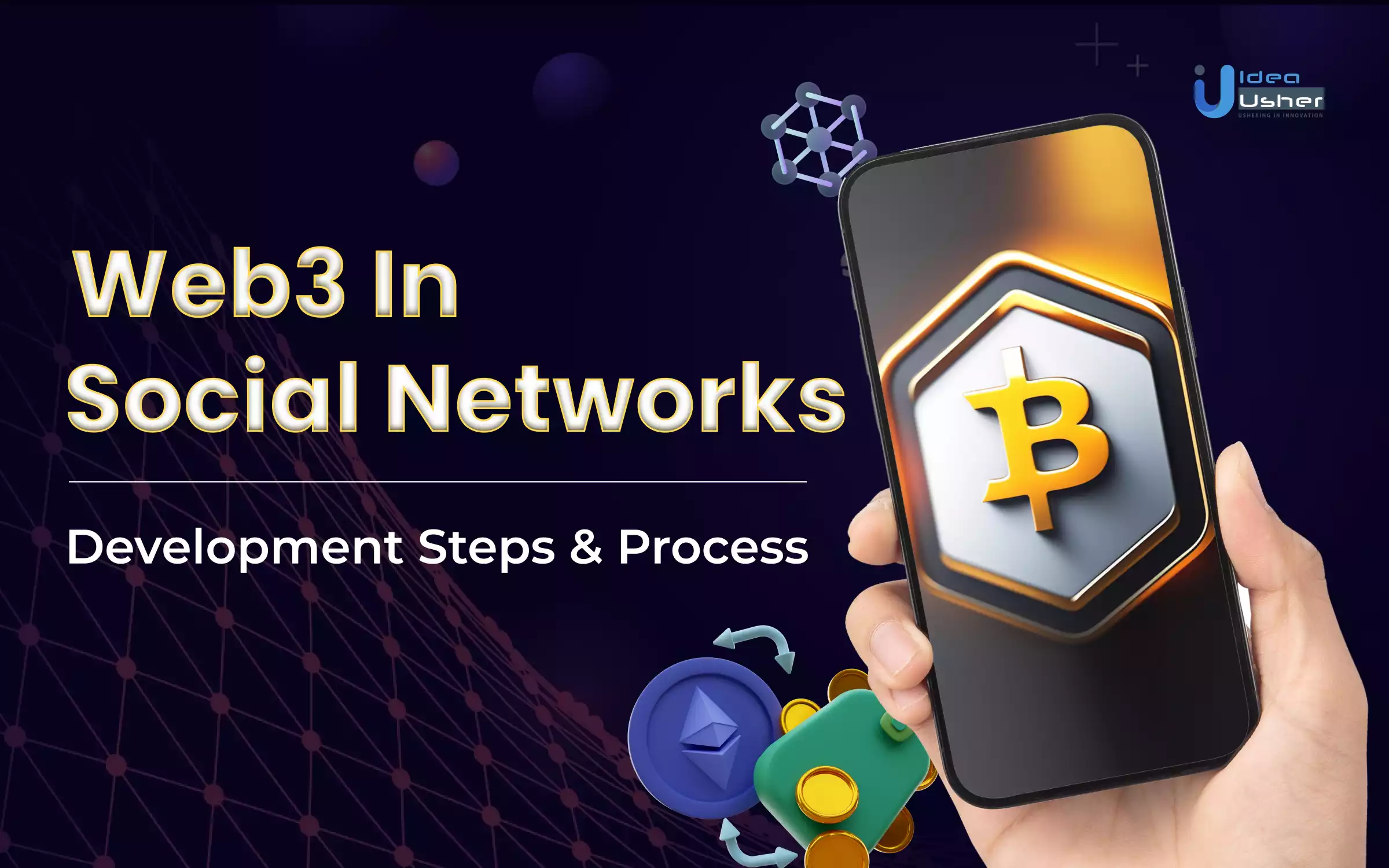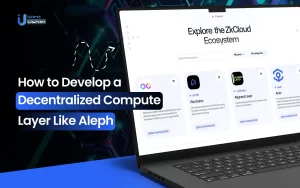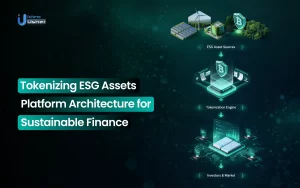The emergence of Web3 social networks has shifted how we interact, share information, and connect online.
There is no doubt that Web 2.0-based social media networks like Facebook, WhatsApp, and others have established a global platform to connect people globally.
From family members to friends, all can share their regular updates through texts, calls, and even video calls on social media. Moreover, social media has facilitated users to promote their businesses and gain popularity.
However, traditional social media sites have some limitations, such as privacy violations, censorship, lack of ownership, and so on. All these limitations can be eliminated by adopting Web 3-based social media platform development.
The above market stat indicates better opportunities for individuals looking to profit by investing in Web 3 social network development.
In this blog, we will understand Web 3 social networks and explore the crucial aspects of decentralized-based social network development, including development steps, required tech stack, top emerging Web 3 social networks, etc.
What Is Web3 In Social Networking?
The centralized or Web 2 social media market is dominated by tech giants with complete authority and power over user information. Users on social media platforms have no control over their own content, and tech media companies can delete any content without the users’ permission.
Web3 is a revolutionary shift from a traditional Web 2.0 social network to create a decentralized ecosystem where users control their own data. Moreover, Web 3.0 social platforms use blockchains and token rewards instead of centralized databases to create a decentralized social network environment.
Web 3 social media also offers dynamic socializing with the ability for creators to tokenize their content into NFTs for monetization in addition to improving users’ privacy and security.
How Does Social Networking Work in Web3?
Web 3 social networks work by offering total control to users over their data and content by utilizing decentralized technologies such as smart contracts, NFTs, cryptocurrencies, etc.
Decentralized social networks are built on transparent digital ledgers that can store immutable data. Moreover, Web 3 social network often uses a peer-to-peer network including thousands of nodes worldwide, which ensures network stability even after the malfunction of specific nodes.
The smart contracts in Web 3 social media applications act as a backend that defines the business logic. The Web 3 social media platforms often reward their users with native tokens in exchange for driving engagement on social networks with content creation and engaging with different posts in the form of likes, shares, comments, etc.
Moreover, users on Web 3 social networks can often purchase these native tokens for various purposes, such as accessing specific features, completing in-app purchases, supporting their favorite content creators with donations, etc.
Advantages Of Web3 in Social Media Platforms
Web3 social media platform development eliminates various limitations of centralized and traditional social media platforms.
Here are several potential advantages of Web 3 social networks over traditional centralized platforms.
1. User Data Ownership and Control
Web 3 empowers users to have greater control and ownership over their personal data. Users can decide who will access their data in addition to reducing the risk of data breaches and unauthorized sharing.
2. Privacy Enhancement
The data can be encrypted and fragmented with various cryptographic techniques and decentralized storage, enabling users to minimize the risk of privacy and data leaks.
3. Monetization Opportunities for Users
Users can have many opportunities to monetize their contributions, such as building engaged communities, creating valuable content, or providing services within the platforms to earn rewards in tokens or other digital assets.
4. Decentralization and Censorship Resistance
Web 3 platforms are more resistant to censorship and single points of failure. By utilizing decentralized solutions like blockchain and decentralized storage, content moderation and decision-making can be more community-driven and result in a great level of decentralization.
5. Interoperability
Web 3 social media applications allow users to seamlessly interact with multiple applications and platforms using their single identity and data set.
6. Incentivized Participation
Users can positively contribute to platform growth and success by fostering a vibrating and engaged user community whenever Web 3-based social media platforms encourage active participation with token-based incentives.
7. Transparency and Trust
Blockchain-based platforms can offer transparency by recording transactions and interactions on an immutable ledger. This transparency can help build trust, as users can verify actions and transactions without relying solely on the platform operator’s claims.
8. Community Governance
The Web 3-based community governance mechanism allows users to make decisions about platform upgrades, rules, and changes, Giving more freedom to users to make changes based on their needs and preferences.
9. New Business Models
There are enormous opportunities to monetize decentralized social media platforms in various ways, such as generating revenue through token sales, membership fees, or other crypto & NFT-based mechanisms.
10. Global Accessibility
Social media bypass geographical restrictions and enable users from all over the world to connect and collaborate simply and more easily as blockchain networks can be accessed worldwide without any restrictions.
Top 5 Web 3 Social Media Platforms In Market Right Now
Social media platforms that care about user data protection and offer total ownership are in demand. Decentralized social media platforms are expected to grow as users see greater control over their data and privacy.
Here are some Web3 social media apps that are offering decentralization for offering users a great level of control and privacy over their content and data.
1. Lens Protocol
Built on Polygon’s proof-of-stack blockchain network, Lens Protocol social network allows its users to monetize their content through community-based tools like mirroring (its own version of retweets), enabling users to distribute their content everywhere.
Their team is working to bring over 100 applications to market, among which five of them are already consumers ready, including a Twitter alternative named Lenster.
| Founded in | 2022 |
| Headquarters | George Town, Midland, Cayman Islands |
| Founded by | Stani Kulechov |
| Blockchain | Polygon |
2. Taki
A tokenized social network aiming to create community by rewarding users with stake-based tokens (TAKI). Users can earn social crypto tokens by interacting with others’ posts or commenting or posting their own.
The platform also enables users to create their own coins for building their own personal economy.
| Founded in | 2022 |
| Headquarters | Singapore |
| Founded by | Kevin Chou, Sakina Arsiwala |
| Blockchain | Solana |
3. DSCVR
DSCVR (pronounced “discover”) aims to offer a platform as an alternative for anyone who uses Reddit, which three friends founded. In a fully on-chain, user-controlled, decentralized social network, the content creator earns rewards whenever other users “upvote” a user’s post.
Additionally, the platform offers individuals control over decision-making who own tokens.
| Founded in | 2021 |
| Headquarters | Los Angeles, United States |
| Founded by | Rick Porter |
| Blockchain | Dfinity’s Internet Computer protocol |
4. Chingari
A video-sharing mobile application that recently shifted from Solana to Aptos blockchain. The users can create original videos and use Augmented Reality based filters.
Chingari also enables its users to earn rewards based on their engagement level and socialization with other users. Chingari also offers various features to its users, such as crypto wallet, crypto mining & staking, Video NFTs, etc.
| Founded in | 2018 |
| Headquarters | Bangalore, India |
| Founded by | Aditya Kothari, Biswatma Nayak, Deepak Salvi, Sumit Gosh |
| Blockchain | Aptos |
5. Diamond App
A decentralized social media platform built on DeSo blockchain technology. The platform aims to give users control over their social identities and the ability to monetize their content.
Diamond app has introduced a unique concept by creating individual tokens named creator coins. These coins represent the users’ reputations and influence within the network, where users can buy, sell, and hold creator coins of various profiles.
The platform has also introduced a social feed where users can access the most popular posts from creators they are following. Moreover, the Diamond App has its own tipping system where users can send crypto to their favorite creators.
| Founded in | 2016 |
| Headquarters | Greater Baltimore-Maryland Area, East Coast, Southern US |
| Founded by | Tony Florida |
| Blockchain | Deso |
Steps To Develop Web3 Social Network Platform
The development of Web 3 social network involves combining traditional web development practices with decentralized technologies such as smart contracts, blockchain, cryptocurrencies, NFTs, etc.
Here is an overview of the development steps of Web 3 social networks.
1. Conceptualize Your Platform
Before starting the development of a Web 3 social network, it is crucial to define the features and purpose of your decentralized social network platform.
Consider various conceptualization factors such as defining the level of ownership of your users over their content, defining the purpose of your social network platform, monetization models, etc.
2. Choose the Blockchain
There are various blockchain networks available, such as Binance Smart Chain, Solana, Polka Dot Ethereum, etc., for Web 3 social network development.
However, Ethereum is the most popular choice for the creation of the web, three applications, and social media networks due to various reasons such as ease of creating and accessing smart contracts, worldwide adoption on a great scale., etc.
Based on your project scope and requirements, the blockchain development team will select the appropriate blockchain network for your Web 3 social network.
3. Design the Architecture
Architecture for the Web 3 social network will define the various crucial aspects, such as offering decentralized identity to users, how user interactions will be recorded, and how data will be stored and managed.
4. Smart Contract Development
The purpose of smart contract development is to handle various functionalities like user profiles, comments, interactions, and other various engagement aspects.
Ethereum is the most recommended blockchain platform for smart contract programming as it offers useful standards like ERC-20 or ERC-721 for tokens and ERC-725/ERC-735 for decentralized identity.
5. User Wallets and Identity
Allow users to control and maintain their digital identity by implementing decentralized identity solutions. Consider using popular decentralized identity solutions like Ethereum ENS (Ethereum Name Service) or other identity protocols.
6. Front-End Development
The ease of accessing your Web 3-based social media network with a simple and engaging UI will overall define its usability. Utilizing web development technologies such as CSS, HTML, and JavaScript frameworks is a way to create a user-friendly and engaging UI experience.
7. Decentralized Storage
Decentralized systems deny relying on central servers. Therefore, it is crucial to integrate decentralized solutions like IPFS (InterPlanetary File System) for storing user-generated content like images and videos.
8. Onboarding
Offer an easy onboarding process to enable users to join your Web 3 social network platform easily. The easy onboarding process will include activities such as user wallet accounts and identity creation.
9. Privacy and Security
It is crucial to securely implement best practices for protecting user data and funds by implementing smart contracts that secure users’ sensitive information in the form of encrypted data.
10. Testing and Deployment
After the successful platform creation, test your platform in a development environment and use the blockchain’s testnet for further testing. In case everything is working as expected, deploy the Web 3 social network to the mainnet.
11. Community and Governance
Involve your Web 3 social network users in a decision-making process through a decentralized governance mechanism for fostering a community around your platform. Engaging your users around governance mechanisms will help you improve the platform in addition to making them user-centric as well.
12. Iterate and Improve
Continuously improving your Web 3 social media platforms is a way to maintain an enhanced user experience.
The best way to keep your platform up to date is to keep an eye on emerging Web 3 technologies and implement them on your platform based on your platform’s needs and requirements. Developing the Web3 social network requires a deep understanding of web development and blockchain technology.
Moreover, it is important to stay up to date with the rapid landscape of Web3 and decentralized technologies and stay competitive in the era of fast adoption of the digital world.
Web3 Social Network Development Tech Stack
Developing a Web3 social network involves a combination of traditional web development technologies and specialized blockchain-related tools.
Here’s a tech stack you might consider using:
1. Blockchain Platform
There are many best-decentralized networks you can go for Web 3 social network development. For example:
- Ethereum
- Binance Smart Chain
- Polkadot
- Solana
2. Smart Contract Development
- Programming Languages: Solidity, Ethereum or Ink
3. Decentralized Identity
- Decentralized identity solutions: ERC-725 and ERC-735 for Ethereum
4. Decentralized Storage
Decentralized Storage Solutions: IPFS (InterPlanetary File System)
5. Front-End Development
- User interface: HTML, CSS, and JavaScript
- Dynamic and interactive components: React, Vue.js, Angular, or other frontend frameworks
6. Backend Development
- Backend frameworks: Node.js with Express.js
- Serverless platforms: AWS Lambda or Firebase Functions.
7. Web3 Libraries
- Web3.js for Ethereum
- Ethers.js for Ethereum
- Web3.py for Ethereum (Python-based)
- Near.js for NEAR Protocol
- Solana Web3.js for Solana
8. Authentication and Wallet Integration
- Ethereum: MetaMask
- Cross-chain compatibility: WalletConnect
- Binance Smart Chain: Binance Chain Wallet
9. APIs and Services
- Decentralized Storage: IPFS
- Indexing Blockchain Data: The Graph
10. Testing and Deployment
- Ethereum smart contract testing and deployment: Truffle or Hardhat
- Mainnet Deployment: Testnets
12. Monitoring and Analytics
- Analytics tools: Google Analytics
- For blockchain interactions: Custom monitoring solutions
13. Version Control and Collaboration
- Code management platform: GitHub or GitLab
- Version control systems: Git
14. Community and Governance Tools
- Blockchain-based voting and decision-making protocols: Community and Governance Mechanisms
15. Continuous Integration/Continuous Deployment (CI/CD)
Automate testing: CI/CD pipelines
The selection of blockchain technologies will depend on the features and functionality of your web3-based social media network.
However, it would be best to consult with a blockchain development company that can help you select the appropriate tools and technologies based on your project needs and requirements.
Here is more information about how to hire blockchain developers.
Conclusion
Social networks built upon decentralized technologies, such as blockchain and smart contracts, aim to empower users by granting them greater control over their data, privacy, and digital identities.
Also, the growing demand for decentralized social media applications offers a better opportunity to tap into the profitable market with platform development.
However, developing decentralized social media applications requires expertise across various app development, blockchain development, and other crucial aspects. Therefore, consulting with an appropriate blockchain development company is essential to simplify your Web 3-based social media platform creation journey.
You can contact our team if you want to develop a decentralized social app.
Our team has the experience to develop a distinctive and cutting-edge social app that is safe and easy to use and will give your consumers the privacy and security they deserve with our decentralized app development services.
We can simply integrate with your current teams to assist you in developing your blockchain-based social app. Also, you can explore the case study of our project, “EQL,” showcasing our blockchain development expertise.
Here is more information about our blockchain development service.
Contact us today to learn more about our services and how we can help bring your app idea to life with Web3 social network development.
Work with Ex-MAANG developers to build next-gen apps schedule your consultation now
FAQ
Q. What is the impact of a decentralized social network?
A. The social network built on the blockchain offers users greater control over their postings and information. Instead of being controlled by centralized organizations, Web 3 platform censorship has been managed by their user communities.
Q. What is the need for decentralized social media?
A. The decentralized social media app allows users to remove the control of the central authority, enabling users to retain their rights and the opportunity to earn rewards.
Q. What are the best decentralized social media platforms?
A. Diamond App, Chingari, DSCVR, Taki, and Lens protocol are some of the best decentralized social media platforms.

























